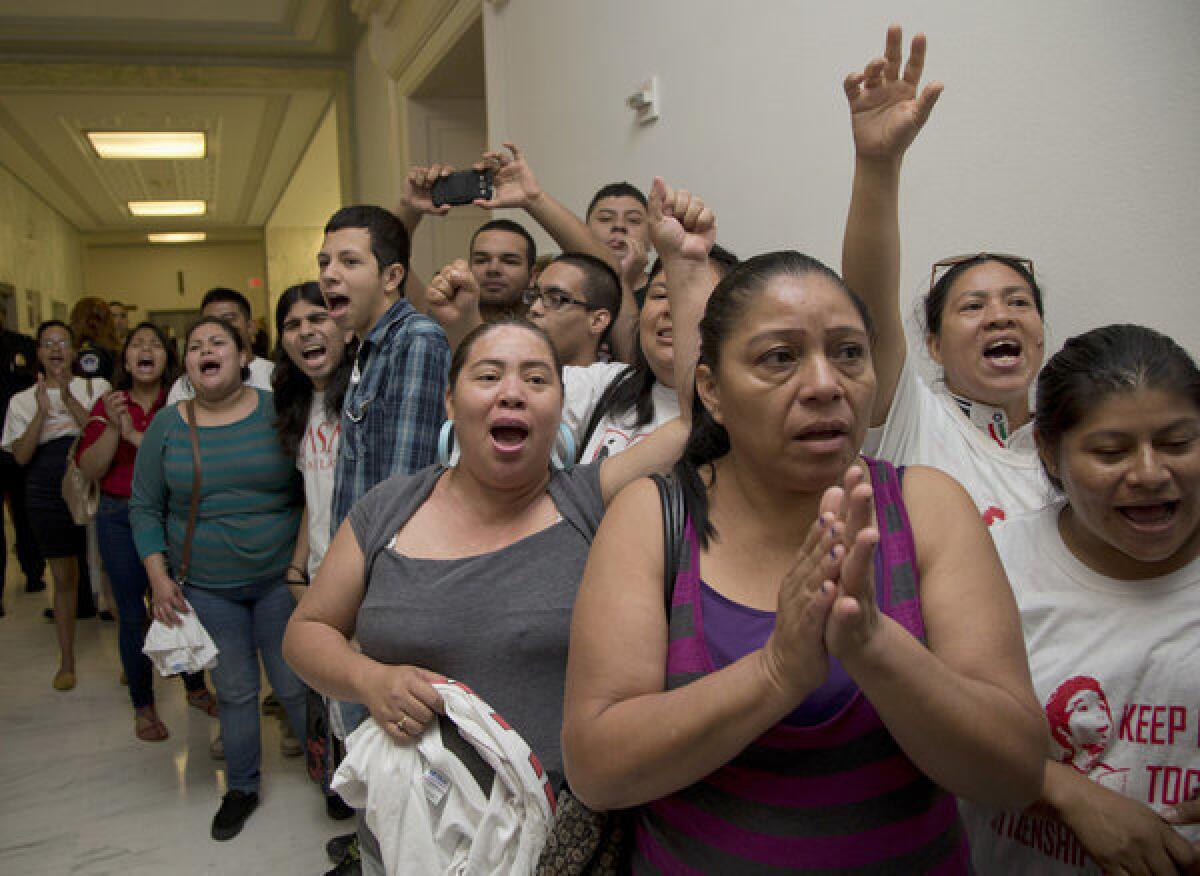Shelve the SAFE Act

- Share via
On Tuesday, the House Judiciary Committee began its review of the SAFE Act, a noxious, cynical measure that, if passed, would designate all undocumented immigrants as criminals for the first time and would allow states to enforce their own immigration laws as well as federal laws. If that sounds at all familiar it’s because the bill is little more than a rewrite of Rep. F. James Sensenbrenner’s punitive 2005 proposal that drove millions of people to march in the streets and ultimately helped doom efforts to overhaul the nation’s broken immigration system.
Some Republicans, including Rep. Bob Goodlatte (R-VA), the chairman of the committee, argue that the SAFE Act is needed to provide stronger internal enforcement of immigration laws. But such arguments are little more than a cynical strategy intended to disguise the bill’s real purpose, which is to derail the current legislative effort to reach a bipartisan agreement on a comprehensive immigration law.
Like the 2005 Sensenbrenner bill, the SAFE Act seeks to turn millions of immigrants into criminals overnight merely because they are unlawfully in the United States — and, in the case of suspected repeat offenders, into felons. Under current law, that is a civil offense.
U.S. immigration law: Decades of debate
Also like its predecessor, the bill would prohibit states and cities from enacting measures to limit immigration enforcement by police. Surely, such a provision would undercut public safety in cities such as Los Angeles, where Police Chief Charlie Beck has warned about the dangers of turning police into immigration agents. That’s the philosophy that led city leaders to enact Special Order 40 more than 30 years ago, forbidding the LAPD from stopping a person for the sole purpose of determining his or her immigration status. The SAFE Act would likely result in a legal challenge to Special Order 40. If that order were repealed, it would deter some immigrants from reporting crimes or cooperating with police.
Those provisions, though deeply troubling, aren’t the worst. The bill would also require the prolonged detention of some nonviolent immigrants for the full duration of the deportation cases and without judicial review of their detention. Not only is that likely to be declared unconstitutional, but it’s just fiscally shortsighted. The average cost of immigration detention is more than $110 a day.
It’s time House Republicans got serious about immigration reform. They can begin by reining in the party’s anti-reform crowd and shelving the SAFE Act.
More to Read
A cure for the common opinion
Get thought-provoking perspectives with our weekly newsletter.
You may occasionally receive promotional content from the Los Angeles Times.






